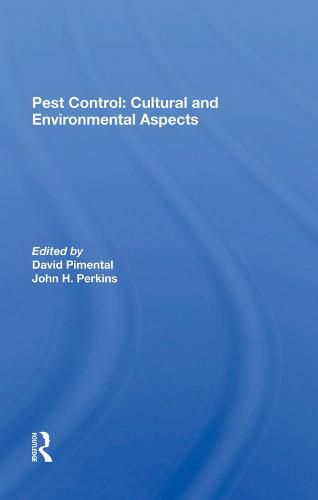Readings Newsletter
Become a Readings Member to make your shopping experience even easier.
Sign in or sign up for free!
You’re not far away from qualifying for FREE standard shipping within Australia
You’ve qualified for FREE standard shipping within Australia
The cart is loading…






The field of pest control research, of increasing importance in a world short of food, has been plagued for many years by a variety of problems, among them (1) the instability (including pesticide resistance) of many control techniques, (2) the continuing need for improved pest management methods to increase world food supplies, and (3) the environmental and social hazards of currently used pesticides. What historical or other factors affect the ability of science to generate useful new technologies to alleviate these three major problems? Are there barriers to cooperation among the different pest control specialists? This book attempts to answer these questions, examining past events and projecting likely impacts on contemporary pest management systems. The authors–sociologists, economists, lawyers, ecologists, political scientists, and pest control scientists–examine the social, economic, political, and ethical factors that are important in shaping pest management systems, as well as developmental patterns that show the importance of these factors in shaping today’s systems.
$9.00 standard shipping within Australia
FREE standard shipping within Australia for orders over $100.00
Express & International shipping calculated at checkout
The field of pest control research, of increasing importance in a world short of food, has been plagued for many years by a variety of problems, among them (1) the instability (including pesticide resistance) of many control techniques, (2) the continuing need for improved pest management methods to increase world food supplies, and (3) the environmental and social hazards of currently used pesticides. What historical or other factors affect the ability of science to generate useful new technologies to alleviate these three major problems? Are there barriers to cooperation among the different pest control specialists? This book attempts to answer these questions, examining past events and projecting likely impacts on contemporary pest management systems. The authors–sociologists, economists, lawyers, ecologists, political scientists, and pest control scientists–examine the social, economic, political, and ethical factors that are important in shaping pest management systems, as well as developmental patterns that show the importance of these factors in shaping today’s systems.